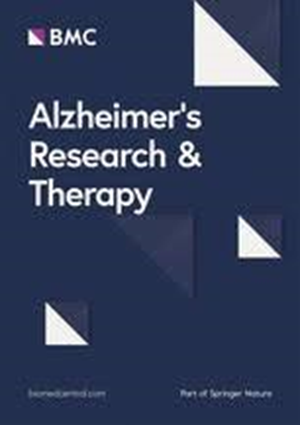对施密特等人的回应:胆固醇酯转移蛋白 (CETP) 活性降低与痴呆症风险:孟德尔随机分析。
IF 7.9
1区 医学
Q1 CLINICAL NEUROLOGY
引用次数: 0
摘要
最近的一篇论文得出结论,基于人类遗传学证据表明靶点抑制对路易体和帕金森痴呆症的风险具有保护作用,抑制胆固醇酯转移蛋白(CETP)可能是治疗痴呆症的可行靶点。阿尔茨海默病是迄今为止最普遍的痴呆症病因(约占所有痴呆症病例的80%),但并未纳入研究结果。有证据表明,抑制CETP不太可能影响阿尔茨海默氏症的风险,甚至可能会适度增加风险。也几乎没有证据支持CETP抑制对全因或血管性痴呆的影响。因此,CETP抑制不太可能成为治疗痴呆最普遍原因的可行靶点。本文章由计算机程序翻译,如有差异,请以英文原文为准。
Response to Schmidt et al.: Lower activity of cholesteryl ester transfer protein (CETP) and the risk of dementia: a Mendelian randomization analysis.
A recent paper concluded that cholesteryl ester transfer protein (CETP) inhibition may be a viable target to treat dementia, based on human genetic evidence of a protective effect of target inhibition on risk of Lewy body and Parkinson's dementia. Alzheimer's disease, which is by far the most prevalent cause of dementia (around 80% of all dementia cases) was not included as an outcome. Evidence shows CETP inhibition is unlikely to affect Alzheimer's risk and may even potentially modestly increase risk. There is also little evidence to support an effect of CETP inhibition on all-cause or vascular dementia. Thus, CETP inhibition is unlikely to be a viable target to treat the most prevalent causes of dementia.
求助全文
通过发布文献求助,成功后即可免费获取论文全文。
去求助
来源期刊

Alzheimer's Research & Therapy
医学-神经病学
CiteScore
13.10
自引率
3.30%
发文量
172
审稿时长
>12 weeks
期刊介绍:
Alzheimer's Research & Therapy is an international peer-reviewed journal that focuses on translational research into Alzheimer's disease and other neurodegenerative diseases. It publishes open-access basic research, clinical trials, drug discovery and development studies, and epidemiologic studies. The journal also includes reviews, viewpoints, commentaries, debates, and reports. All articles published in Alzheimer's Research & Therapy are included in several reputable databases such as CAS, Current contents, DOAJ, Embase, Journal Citation Reports/Science Edition, MEDLINE, PubMed, PubMed Central, Science Citation Index Expanded (Web of Science) and Scopus.
 求助内容:
求助内容: 应助结果提醒方式:
应助结果提醒方式:


